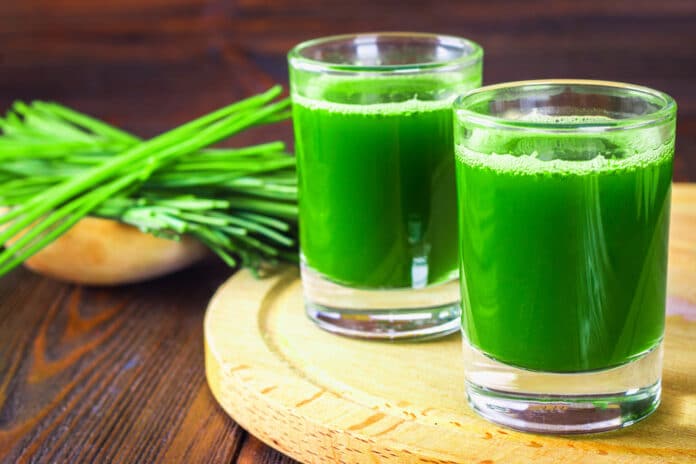
Everyone wants a miracle drug that can immediately mend all wounds and solve all problems. Some people believe wheatgrass is that miracle cure. In this article, we will be talking about wheatgrass and if it is the superfood people make it to be.
What Is Wheatgrass?
Wheatgrass is the seedling of the wheat plant Triticum Aestivum. It grows well in temperate regions. However, its juice doesn’t taste good (it tastes like blended lawn trimmings). A lot of people grow their wheatgrass. It is usually blended or squeezed to make juice, but sometimes they are dried and made into capsules. While most eat it processed, some eat it raw.
What Can Wheatgrass Do?
Wheatgrass contains vitamins and minerals, some of which are antioxidants like calcium, iron, selenium, magnesium, and vitamins A, C, E, K, and B6. People who believe in the grass’s medicinal qualities use it to cure skin conditions, digestive problems, coughs, colds, and fevers.
They also claim that it can prevent serious conditions like cancer and AIDS. Sadly, with all these claims, hardly any evidence proves that wheatgrass can detoxify, cure, or prevent diseases.
According to some research, here is what wheatgrass may do:
1. A 2002 study in Israel shows that wheatgrass juice can ease the symptoms of ulcerative colitis. Although more study needs to be carried out, there is at least a possible benefit of wheatgrass.
2. Another study shows that wheatgrass can reduce chemotherapy side effects. Although it didn’t shrink the tumor or increase the chance of surviving cancer, it did show that it can reduce some of the harmful effects of chemotherapy without reducing the effectiveness of the treatment.
Is Wheatgrass Risky?
Even though wheatgrass is said to be safe, some users have reported having side effects, especially after taking high doses. The side effects have ranged from mild to severe reactions. Mild reactions included nausea and headaches, while the serious ones were swelling of the throat and hives. Those that eat the grass raw have a high chance of contaminating bacteria from the soil. Taking a small amount of wheatgrass is not bad, but people with compromised immunity, like children and pregnant women, should avoid it.
Bottom Line
Wheatgrass is not bad, but it is also not a superfood, and it is just like most vegetables containing chlorophyll. You shouldn’t take wheatgrass in large quantities, as it might cause some side effects. Yes, eating the grass has potential benefits, but it is not a miracle worker. Also, before taking wheatgrass, talk to your doctor.


















